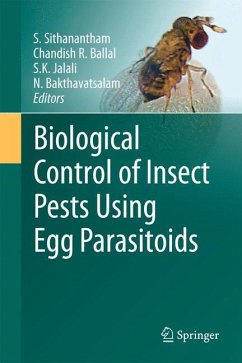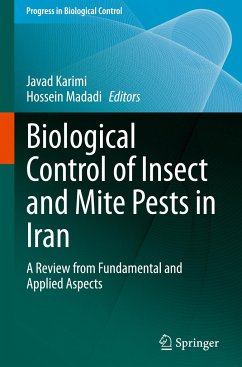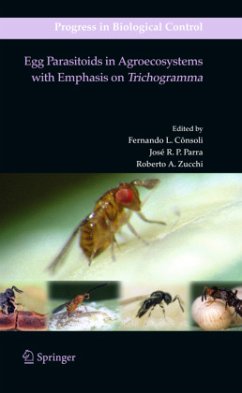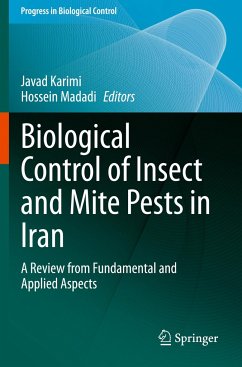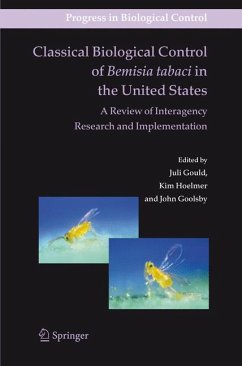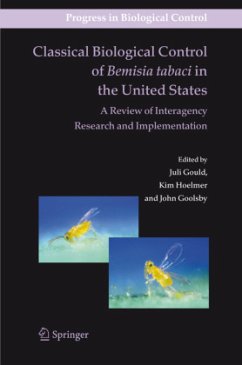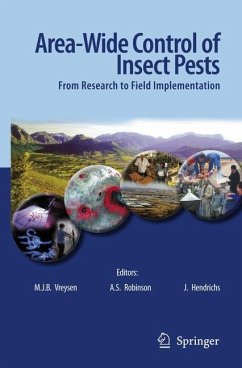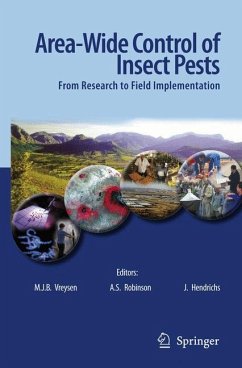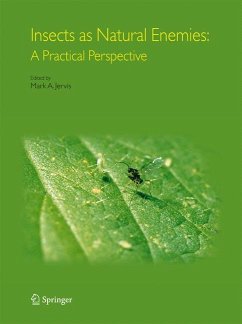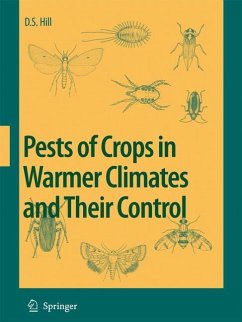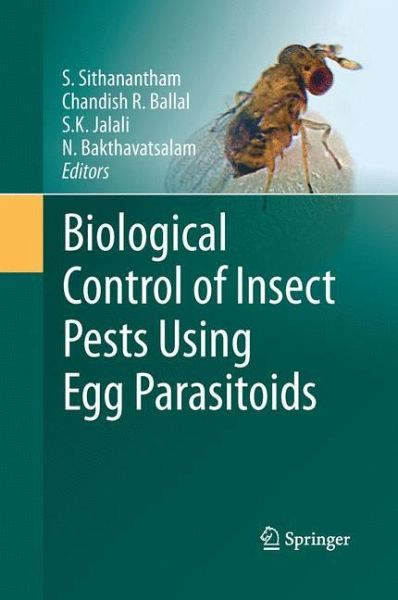
Biological Control of Insect Pests Using Egg Parasitoids
Versandkostenfrei!
Versandfertig in 6-10 Tagen
113,99 €
inkl. MwSt.

PAYBACK Punkte
57 °P sammeln!
The theme of the book is highly relevant to the current emphasis on environment conservation, with focus on native biodiversity conservation in agro-ecosystems. The current impetus being given to organic farming and export oriented agri-hortculture in the country calls for access to relevant scientific knowledge base among the stakeholders. Research on biological pest control is more than a century old in India. Egg parasitoids, which are mainly tiny wasps, led by the family Trichogrammatidae, are the most widely utilized natural enemies for biological control globally. Over thirty countries a...
The theme of the book is highly relevant to the current emphasis on environment conservation, with focus on native biodiversity conservation in agro-ecosystems. The current impetus being given to organic farming and export oriented agri-hortculture in the country calls for access to relevant scientific knowledge base among the stakeholders. Research on biological pest control is more than a century old in India. Egg parasitoids, which are mainly tiny wasps, led by the family Trichogrammatidae, are the most widely utilized natural enemies for biological control globally. Over thirty countries are using these bioagents to protect over 10 million hectares of agricultural and forestry crops from many important insect pests.The book comprises 18 chapters, which are arranged in continuum, commencing with basic aspects of knowledge and ending in their utilization targets. The chapters cover broadly four areas: bio-diversity and natural occurrence of egg parasitoids, behaviour and adaptationof egg parasitoids, mass production and safe use of egg parasitoids and utilisation of egg parasitoids in different crop ecosystems. Some of the chapters cater to the needs of discipline-wise update on the current R&D scenario-like insect taxonomy, biotechnology, mass-production and quality control of the target organisms - egg-parasitoids, which are useful for laboratory scientists/researchers. There are also chapters devoted to knowledge status and scope for utilization of egg parasitoids in different target crops, which cater to requirements of field entomologists and extensionists for use in their tasks of guiding farmers/local guides.The book is different in approach, method, structure and content and ensures holistic coverage of the topic. The chapters are written by active and experienced workers in different crops and aspects and co-edited by four very experienced experts who have over three decades R&D experience in the subject. All the authors have uniformly focussedon comprehensive literature study and critical identification of knowledge gaps for future R&D, thus the book is novel in outlook, up-to-date in content and comprehensive in coverage of themes.This book will be useful for supplementary reading for MSc Agriculture and PhD Agriculture students, besides MSc/PhD research students in Zoology/Environmental Biology, who are specialising in Entomology. It would also serve as a very useful reference book for researchers worldwide, though focus is also there on Indian work. It addresses the special information needs of students and faculty, besides practitioners and extensionists in the Australasia and Africa regions and thus not limited to the R&D knowledge generated in developed countries.





